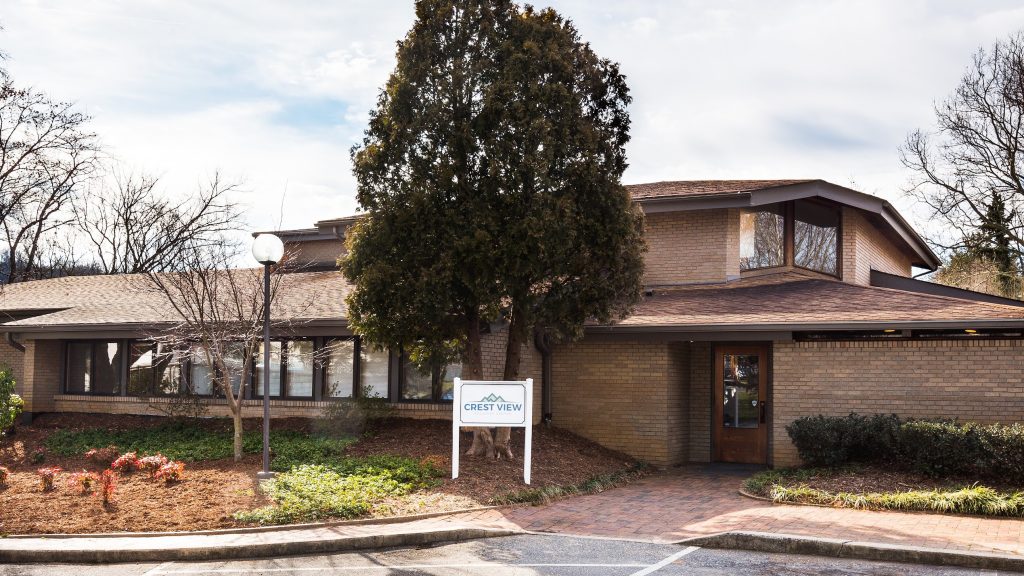Crestview Recovery
Crestview Recovery is a leading addiction treatment center in Portland, Oregon, offering evidence-based and holistic programs for adults. Their mission centers on helping individuals achieve sustainable sobriety through personalized care and compassionate support. The center provides flexible treatment levels from PHP to outpatient and aftercare, ensuring each client receives the right intensity of care for…
Why Trust ExecutiveRehabs
Since 2003, our expert team has built comprehensive resources on executive rehab centers that you can trust to find the right treatment for you.
Transparency and accuracy matter, and we believe you deserve nothing short of the best possible experience when reaching out for support.
FAQs on Executive Rehab
The Landscape of Executive Rehabs in Oregon
Oregon’s economy spans technology, manufacturing, healthcare, education, and public administration.
Metro centers like Portland, Salem, and Eugene host dense clusters of executives and professionals working under sustained performance pressure.
According to the Oregon Health Authority (OHA), more than 260,000 adults met diagnostic criteria for substance-use disorder in 2023, yet fewer than one-third received treatment (OHA Behavioral Health Report, 2024).
Among working professionals, alcohol and prescription misuse remain the most cited substances.
Executive rehabs in Oregon target this segment by combining evidence-based treatment with privacy, flexible scheduling, and therapeutic environments conducive to maintaining professional responsibilities.
Defining Features of Executive Rehab Programs
According to SAMHSA’s National Survey of Substance Use Treatment Services (N-SSATS, 2023) and clinical literature from the Journal of Substance Abuse Treatment, executive programs typically include:
-
Confidential admissions and private rooms or suites.
-
On-site communication access (secure Wi-Fi, monitored laptop or phone use).
-
Individualized therapy schedules integrating business coaching, stress management, and leadership counseling.
-
Dual-diagnosis capability for co-occurring depression, anxiety, or burnout.
-
Concierge-level amenities such as fitness studios, private chefs, and holistic therapies (yoga, meditation, nutrition counseling).
-
Continuity of care through telehealth and outpatient maintenance plans to reduce relapse risk post-discharge.
Oregon facilities like Hazelden Betty Ford Beaverton, Serenity Lane, and Recovery Works NW offer some executive-adapted services, though few market fully distinct “executive tracks.”
Most clients seeking such customization rely on individualized cash-pay upgrades within larger clinical frameworks.
Market and Access Limitations in Oregon
The state’s limited number of licensed residential programs, fewer than 200 as of 2024 per SAMHSA’s Treatment Locator, creates bottlenecks. Urban centers have high demand but modest bed capacity.
Executives often avoid local facilities to preserve anonymity and prevent professional exposure within small business circles.
Insurance complexity also influences utilization. While Oregon law mandates mental-health parity (ORS 743A.168), many commercial plans classify premium lodging or personalized therapy as non-covered services, making self-pay costs typical for executive programs.
Average cash rates range $25,000–$65,000 per month depending on setting and amenities, consistent with national pricing reported by the American Addiction Centers Cost Survey, 2024.
Regulatory and Privacy Considerations
Oregon enforces strict confidentiality under ORS 430.399 and 42 CFR Part 2, aligning with federal HIPAA regulations. State licensing through the Oregon Health Authority’s Health Systems Division requires all substance-use providers to maintain data protection and informed-consent protocols.
Telehealth expansion, legalized permanently in 2022, allows executive clients to continue therapy discreetly during travel or corporate assignments. However, providers must verify in-state clinician licensure and secure encrypted platforms compliant with both HIPAA and Oregon Administrative Rule 309-032-0860.
Executive-Specific Challenges
-
Time Constraints: Many professionals delay treatment due to operational responsibilities or board accountability. Programs offering partial hospitalization (PHP) or intensive outpatient (IOP) formats accommodate these schedules.
-
Occupational Stigma: Executives cite fear of reputational damage as a deterrent. Private-pay and out-of-state programs mitigate this risk.
-
Co-occurring Disorders: High rates of burnout, anxiety, and insomnia necessitate integrated psychiatric oversight, which not all Oregon centers provide.
-
Workforce Pressure: Oregon’s competitive tech and manufacturing sectors foster high-stress environments, contributing to elevated alcohol use among leadership roles (Oregon Behavioral Risk Factor Surveillance System, 2023).
Comparative Destinations for Oregon Executives
Many Oregon-based executives travel regionally or nationally for specialized care. Leading alternatives include:
-
California (Malibu, Napa, Monterey): Offers a concentration of luxury and executive-specific rehabs with advanced confidentiality measures.
-
Washington (Seattle, Bellevue): Provides proximity plus robust telehealth integration for Oregon professionals.
-
Utah and Colorado: Appeal for wilderness or retreat-based executive programs such as Cirque Lodge and The Lodge at Blue Sky.
-
Hawaii: Attracts corporate leaders seeking extended residential care in secluded environments.
These destinations attract Oregon residents primarily for privacy and expanded service menus, executive coaching, family systems therapy, and medically managed detox with minimal publicity exposure.
The Future of Executive Addiction Treatment in Oregon
Statewide initiatives under the Measure 110 Behavioral Health Resource Networks (BHRNs) continue to expand outpatient and peer-support services.
While not targeted exclusively at executives, this infrastructure creates referral pathways for high-functioning individuals reluctant to enter traditional rehab.
Oregon’s corporate wellness trend, led by employers in tech and healthcare, is also advancing early intervention through employee-assistance programs (EAPs) and confidential substance-use screenings.
These mechanisms reduce downstream treatment cost and improve executive engagement rates.
Clinicians increasingly incorporate evidence-based modalities, Cognitive Behavioral Therapy (CBT), Acceptance and Commitment Therapy (ACT), and pharmacotherapy (naltrexone, buprenorphine), alongside holistic stress-reduction methods. The emerging hybrid model allows executives to maintain work continuity through structured telehealth follow-ups post-residential care.
Key Takeaways
-
Executive rehab availability within Oregon remains limited but evolving, with most programs concentrated in the Portland-Eugene corridor.
-
High-level clients prioritize privacy, dual-diagnosis expertise, and flexible care models over location.
-
Out-of-state options continue to dominate the market for Oregon executives seeking luxury or anonymity.
-
Strengthened telehealth laws and parity enforcement may gradually reduce the need for interstate travel over the next decade.
References & Citations
Oregon Health Authority. Behavioral Health Data and Reports, 2024. https://www.oregon.gov/oha
SAMHSA. National Survey of Substance Use Treatment Services (N-SSATS), 2023. https://www.samhsa.gov/data/
U.S. Department of Health & Human Services. 42 CFR Part 2 – Confidentiality of Substance Use Disorder Patient Records. https://www.ecfr.gov/current/title-42/part-2
Oregon Revised Statutes § 430.399 and § 743A.168. Confidentiality and Mental-Health Parity.https://www.oregonlegislature.gov
Oregon Behavioral Risk Factor Surveillance System (BRFSS), 2023. Adult Substance Use Indicators.

